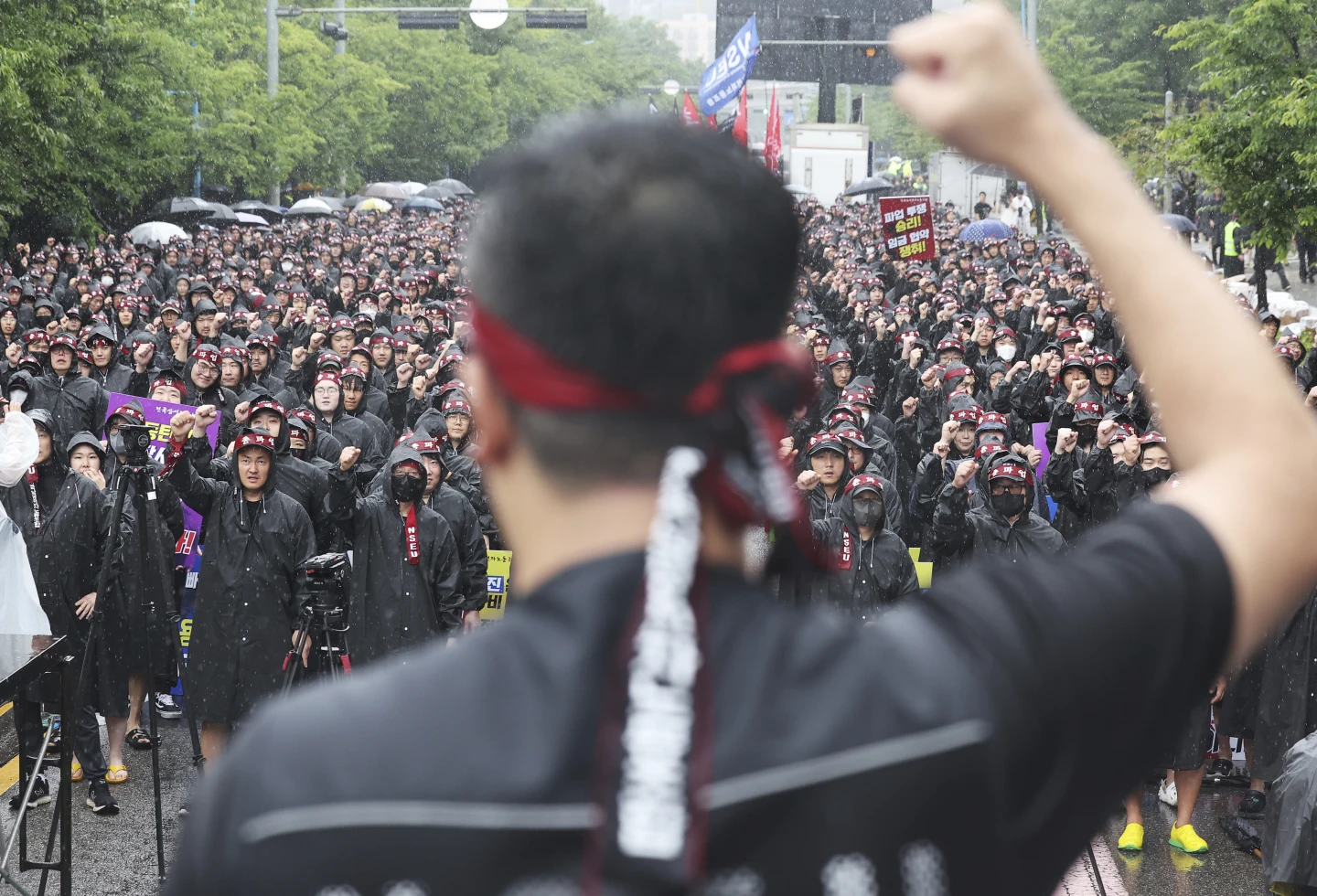
Samsung is South Korea’s largest privately held company and the world’s largest manufacturer of memory chips for a variety of electronic devices.
Thousands of members of the Samsung Electronics National Union began a three-day temporary strike on Monday, and on Wednesday the union announced an indefinite strike after the company’s management failed to respond and showed no desire to start negotiations.
The union had said 6,540 of its members would take part in the earlier three-day strike. That would represent a fraction of Samsung Electronics’ total workforce, estimated at around 267,860 worldwide, of which 120,000 are in South Korea.
In June, Samsung workers went on a one-day strike, the first in the company’s history. The workers are demanding a 3.5 percent pay increase, better bonus policies, and paid vacations for all employees. Entry-level employees at Samsung typically get more than two weeks of vacation a year, some paid and some unpaid. The union is also demanding that Samsung agree to compensate workers for wages lost during the strike.
The workers claim that the extraordinary bonus paid to a company executive is very unequal compared to an initial employee. Although in recent years union workers have said they received bonuses of up to 30%, last year they received nothing.
Last week, Samsung announced that its second-quarter profit of $7.5 billion would rise more than expected. The company’s stock has soared recently as demand for chips to power artificial intelligence applications has increased exponentially.
Kim Jae Won, who attended a workers’ rally outside a Samsung semiconductor factory on Monday, has worked at Samsung’s memory chip division since 2019, said:“I understand that if the company is doing badly they can’t give us our bonuses, but the fact that executives took huge bonuses last year, I can’t understand that.”
The union said negotiations with Samsung over vacation days and wages began in January; in a statement the union said: “As the strike drags on, management’s blood will dry up and they will eventually come to the negotiating table on their knees.”
According to the union, this week’s strike has slowed down some operations and production at Samsung. A Samsung representative said the strike had not affected production and that efforts would be made to avoid future disruptions.
According to Avril Wu, vice president of research at TrendForcea market research firm, the impact of the strike was expected to be minimal as there is a “high level of automation in factories and the real need for labor is low.” “Our research team has consulted buyers and sellers in the memory market, and neither side is really concerned about this issue.”he claimed.
In a statement, Samsung Electronics said there have been no interruptions in production: “Samsung Electronics will ensure that there are no disruptions to production lines, and the company remains committed to engaging in good faith negotiations with the union.”
However, in a statement posted on its website, the union said it had carried out unspecified stoppages on the company’s production lines in an effort to finally get management to sit down at the negotiating table. “We are confident of our victory”the union statement said.
Some 30,000 Samsung workers are members of the Samsung Electronics National Union, the company’s largest, and some belong to other smaller unions.
In 2020, Samsung chief Lee Jae-yong, then a vice chairman of the company, said he would stop cracking down on employees’ attempts to organize unions, doing so as he made public his regret for his alleged involvement in a massive corruption scandal in 2016 that ousted the country’s president. The company’s union-busting practices had been criticized by activists for decades, though worker actions at other companies and in other sectors of society are common in South Korea.
South Korea has been experiencing days of workers’ strikes recently. Since February, more than 10,000 doctors have gone on strike against the government’s plans to increase the number of medical students admitted, while thousands of construction workers have also gone on strike against the government’s plans.
With information from AP and NYT.
Source: www.laizquierdadiario.com

